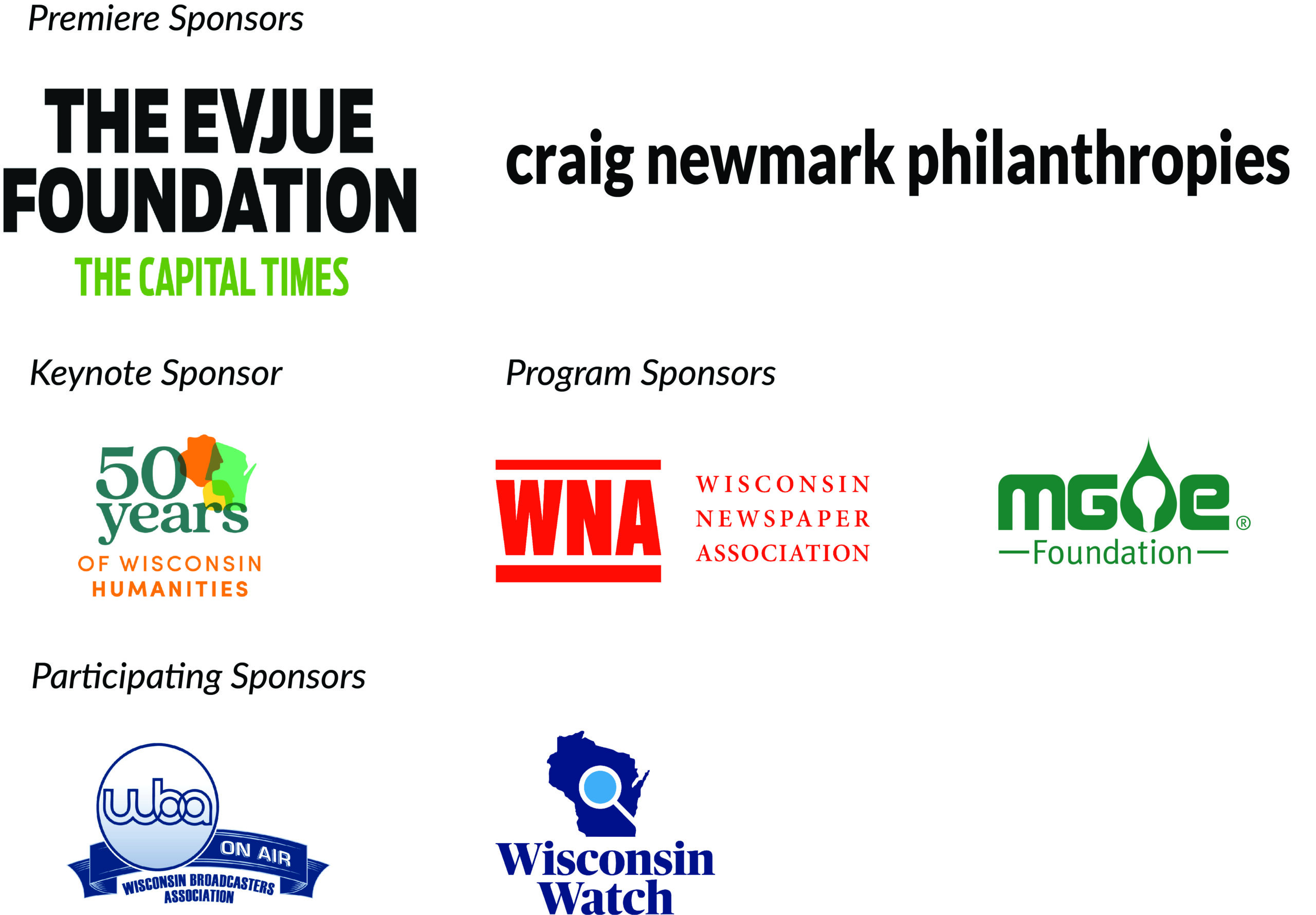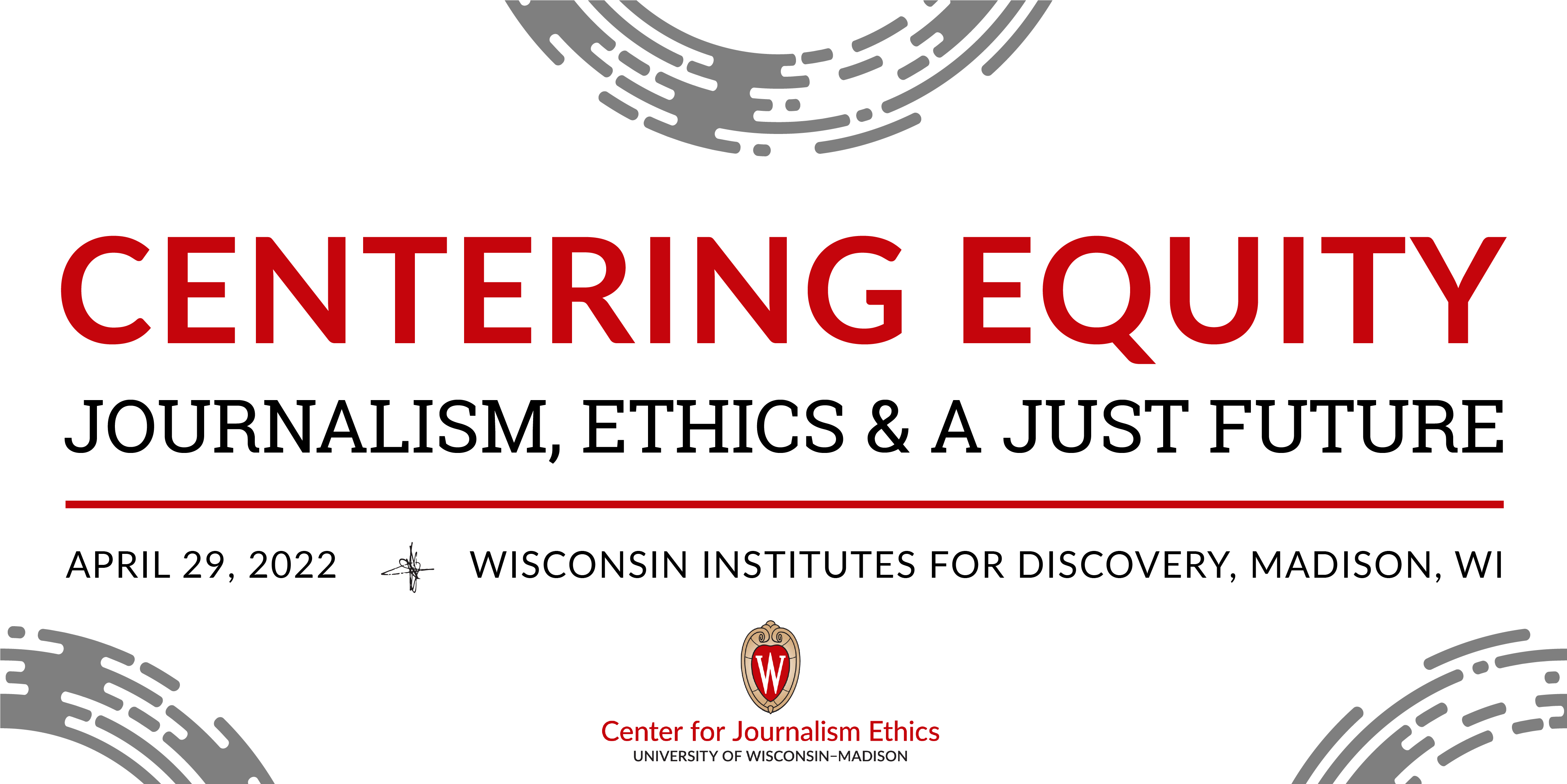
This conference is free, open to the public and will take place online and in-person at the Wisconsin Institutes for Discovery, 330 N. Orchard St., Madison, Wis.
ONLINE REGISTRATION IS CLOSED.
PLEASE REGISTER AT THE DOOR.
PROGRAM

Sewell Chan joined The Texas Tribune as editor in chief in October 2021. Previously he was a deputy managing editor and then the editorial page editor at the Los Angeles Times, where he oversaw coverage that was awarded a Pulitzer Prize for editorial writing in 2021. Chan worked at the New York Times from 2004 to 2018, as a metro reporter, Washington correspondent, deputy Op-Ed editor and international news editor. He began his career as a local reporter at the Washington Post in 2000. A child of immigrants, Chan was the first in his family to graduate from college. He holds degrees from Harvard and Oxford, where he studied on a British Marshall Scholarship. Chan lives in Austin.


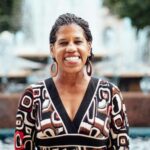

POINTS OF VIEW: WHAT ABOUT EQUITY WITHIN JOURNALISM?
Throughout the day’s conference, attendees will hear from these news leaders who will train their focus inward, addressing equity issues in the media and its workplaces.
Shifting Power and the Case for Culturally Competent News Media
- Tracie Powell, founder of The Pivot Fund
The Truth in Black and White: The Case for Addressing Historical Wrongs
- Mará Rose Williams, reporter for the Kansas City Star
Finding your power as a journalist: THE CASE FOR applying Your ethics to Your workplaces
- Jon Schleuss, president of the NewsGuild

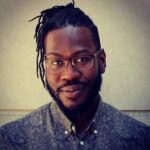

10:10 AM CT
PANEL 1: COVERING INEQUITY IN SYSTEMS
Ongoing crises in the United States and around the world are increasing and exposing inequities in housing, criminal justice, food security, employment, health care, voting access and more. What practices keep us from examining systems? What barriers do we face and how can we overcome them? What are some stellar examples of reporting on systems and how can those be replicated?
- Moderator: Jill Geisler, Bill Plante Chair in Leadership and Media Integrity, Loyola University Chicago
- Adeshina Emmanuel, editor-in-chief, Injustice Watch
- Melissa Sanchez, reporter, ProPublica



11:10 AM CT
PANEL 2: REPRESENTING COMMUNITIES EQUITABLY
This panel will address the best and most ethical practices for covering every community. How do journalists best engage with people whose lived experiences differ from their own? What does inclusive sourcing look like? How might traditional notions of neutrality or objectivity become barriers to inclusive coverage?
- Moderator: Anita Varma, assistant professor in the School of Journalism and Media, University of Texas–Austin
- Nikki Usher, associate professor of journalism in the College of Media, University of Illinois at Urbana-Champaign
- Francisco Vara-Orta, director of diversity and inclusion, Investigative Reporters & Editors
12:00 PM: LUNCH
12:45 PM CT: 2022 SHADID AWARD PRESENTATION
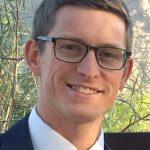


1:00 PM CT
PANEL 3: COVERAGE IN FOCUS: INEQUITY & TECH
Inequities in technology are connected to inequities in virtually every other area: health, employment, criminal justice. What aspects of tech ought journalists look at? What are some examples of strong reporting in this arena? How can tech become more transparent and accessible?
- Moderator: Nick Penzenstadler, investigative reporter, USA TODAY
- Julia Angwin, founder and editor in chief, The Markup
- Paul Cheung, CEO, Center for Public Integrity
2:05 PM CT: REMEMBERING JIM BURGESS
PANELISTS AND PARTICIPANTS
 Julia Angwin founded The Markup to produce meaningful data-centered journalism about technology and the people affected by it.
Julia Angwin founded The Markup to produce meaningful data-centered journalism about technology and the people affected by it.
Before founding The Markup, she led investigative teams at ProPublica and The Wall Street Journal. She is the author of “Dragnet Nation: A Quest for Privacy, Security and Freedom in a World of Relentless Surveillance” (Times Books, 2014) and “Stealing MySpace: The Battle to Control the Most Popular Website in America” (Random House, March 2009). She has a B.A. in mathematics from The University of Chicago and an MBA from Columbia University.
She is a winner and two-time finalist for the Pulitzer Prize in journalism.
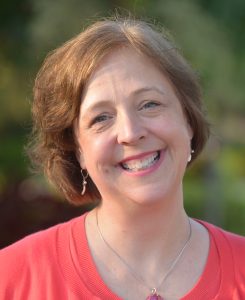
Kathleen Bartzen Culver
Kathleen Bartzen Culver is the James E. Burgess Chair in Journalism Ethics, an associate professor in the University of Wisconsin-Madison School of Journalism & Mass Communication and director of the Center for Journalism Ethics.
Long interested in the implications of digital media on journalism and public communication, Culver focuses on the ethical dimensions of social tools, technological advances and networked information. She combines these interests with a background in law and free expression. She also serves as visiting faculty for the Poynter Institute for Media Studies and was the founding editor of PBS MediaShift’s education section.
 Sewell Chan joined The Texas Tribune as editor in chief in October 2021. Previously he was a deputy managing editor and then the editorial page editor at the Los Angeles Times, where he oversaw coverage that was awarded a Pulitzer Prize for editorial writing in 2021. Chan worked at the New York Times from 2004 to 2018, as a metro reporter, Washington correspondent, deputy Op-Ed editor and international news editor. He began his career as a local reporter at the Washington Post in 2000. A child of immigrants, Chan was the first in his family to graduate from college. He holds degrees from Harvard and Oxford, where he studied on a British Marshall Scholarship. Chan lives in Austin.
Sewell Chan joined The Texas Tribune as editor in chief in October 2021. Previously he was a deputy managing editor and then the editorial page editor at the Los Angeles Times, where he oversaw coverage that was awarded a Pulitzer Prize for editorial writing in 2021. Chan worked at the New York Times from 2004 to 2018, as a metro reporter, Washington correspondent, deputy Op-Ed editor and international news editor. He began his career as a local reporter at the Washington Post in 2000. A child of immigrants, Chan was the first in his family to graduate from college. He holds degrees from Harvard and Oxford, where he studied on a British Marshall Scholarship. Chan lives in Austin.

Paul Cheung leads The Center for Public Integrity as CEO to counter the corrosive effects of inequality by using investigative reporting to hold powerful systems and interests accountable. Previously, he managed a multi-million dollars investment portfolio at the Knight Foundation to scale the use of artificial intelligence, improve business sustainability solutions, and combat misinformation.
Cheung has 20 years of experience in leading digital transformation and led cross functional teams of journalists, technologists, data-scientists, and designers, at media outlets including NBC News Digital, The Associated Press, The Miami Herald, and The Wall Street Journal. Cheung currently serves on the board of First Draft News, a nonprofit to protect communities from harmful misinformation and News Leaders Association, a nonprofit to empower journalists to lead and transform the news industry
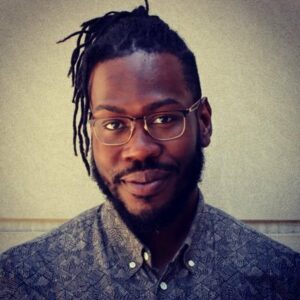 Adeshina is the editor-in-chief at Injustice Watch. His work over the past decade has spanned hyperlocal and national reporting with a focus on race, class, and institutional injustice. Before coming to Injustice Watch in 2019, Adeshina covered education at Chalkbeat and has held past stints as an investigative reporter at the Chicago Reporter, and a neighborhood reporter at DNAinfo Chicago.
Adeshina is the editor-in-chief at Injustice Watch. His work over the past decade has spanned hyperlocal and national reporting with a focus on race, class, and institutional injustice. Before coming to Injustice Watch in 2019, Adeshina covered education at Chalkbeat and has held past stints as an investigative reporter at the Chicago Reporter, and a neighborhood reporter at DNAinfo Chicago.
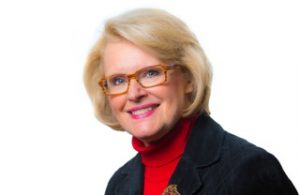
Jill Geisler is the Bill Plante Chair in Leadership and Media Integrity at Loyola University Chicago. She also serves as the Freedom Forum Institute Fellow in Women’s Leadership, heading its Power Shift Project. Geisler teaches and coaches newsroom leaders worldwide. She spent 16 years guiding the leadership and management programs of the Poynter Institute. She is the author of the book “Work Happy: What Great Bosses Know,” writes a management column for the Columbia Journalism Review, and produces the podcast: “Q&A: Leadership and Integrity in the Digital Age.” Her first career was in broadcast journalism, as a reporter, anchor, and one of the first female TV news directors in the United States at WITI-TV in Milwaukee. She has been inducted into multiple media halls of fame. She holds a bachelor’s degree in journalism from UW–Madison and a masters in leadership studies from Duquesne University.
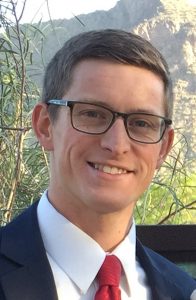
Nick Penzenstadler is an investigative reporter at USA TODAY where he works on national investigations. His team specializes in data analysis and project management for collaborations across the 109 community newsrooms within Gannett. He has piloted reporting collaborations at USA TODAY withProPublica, The Center for Public Integrity, Tegnabroadcasting and Kaiser Health News. He has appeared on CNN, MSNBC, NBC and NPRpromoting his work.
Before joining USA TODAY, he was a city hall reporter at The Post-Crescent in Appleton, Wis. He served as the state’s correspondent for USA TODAY’s national news desk. Previously, he worked as a military and general assignment reporter at the Rapid City Journal in South Dakota. Penzenstadler graduated from UW–Madison in 2010 with with a B.S. from the School of Journalism and Mass Communication and Department of Political Science. He served as a reporter, editor and publisher at The Badger Heraldfrom 2006-2010. He lives in New Berlin, Wisconsin with his wife Kate and twin daughters
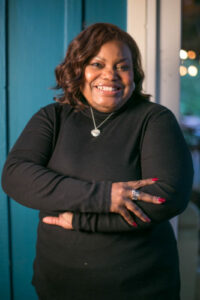
Tracie Powell is a leader in philanthropic efforts to increase racial equity and diversity in news media. She is the founder of The Pivot Fund, which seeks to support independent BIPOC community news.
Powell is a Fall 2021 Shorenstein Center Research Fellow at Harvard Kennedy School, where she is researching mechanisms for funding and capacity building for media outlets run by and for BIPOCTM (Black, Indigenous, other people of color, and traditionally marginalized) communities. Powell is also the board chair of LION Publishers, a professional journalism association for independent news publishers where she has served on the board since 2017.
Prior to her work with The Pivot Fund and Harvard, Powell was founding fund manager of the Racial Equity in Journalism (REJ) Fund at Borealis Philanthropy. Powell is also the founder of AllDigitocracy.org, which focuses on the media and its impact on diverse communities. She was a senior fellow with the Democracy Fund, where she worked on the Public Square initiative that seeks to support informed dialogue through nonprofit journalism investments. Powell was a 2016 JSK (Knight) Fellow at Stanford University and has written regularly for the Columbia Journalism Review and Poynter Online. Her work has been highlighted by countless journalism and academic institutions, including Harvard’s Nieman Journalism Lab. She is a graduate of Georgetown University Law Center and The University of Georgia’s Henry W. Grady College of Journalism and Mass Communication.
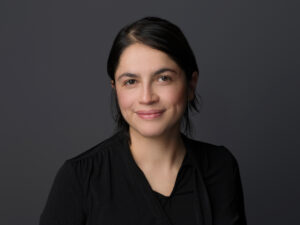
Melissa Sanchez joined ProPublica as a reporter in 2017. She is based in Chicago and is focused on stories about immigrants and low-wage workers across the Midwest. Her reporting on how Chicago’s system of ticketing and debt collection was sending tens of thousands of mostly Black motorists into bankruptcy led to a series of reforms, including changes to state law that ended the practice of suspending driver’s licenses over ticket debt. She previously worked for Catalyst Chicago, El Nuevo Herald in Miami and the Yakima (Wash.) Herald-Republic. She is the daughter of immigrants from Mexico and El Salvador.

Jon Schleuss is the president of The NewsGuild, which is a labor union that represents about 25,000 journalists, media workers and other activists in North America. About 6,300 workers have joined the Guild in the past four years, making it one of the fastest growing unions in the U.S. Jon’s journalism career started at the Northwest Arkansas Democrat-Gazette where he was the online editor. He later worked as a data and graphics journalist at the L.A. Times where he and his colleagues organized a newsroom union for the first time in the Times’ 137-year history. He’s been the Guild president since 2019.
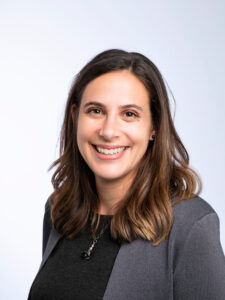
Nikki Usher, Ph.D., is an associate professor at the University of Illinois Urbana-Champaign in the College of Media with affiliate appointments in Communication and Political Science. Usher is also a Senior Fellow at the Open Markets Institute’s Knight-funded Center for Journalism and Liberty. She is the author of three books, including News for the Rich, White, and Blue: How Place and Power Distort American Journalism (2021) and the editor, with Valerie Belair-Gagnon, of Journalism Research that Matters (2021). Her work explores the way that platforms, power, politics and inequality impact the future of journalism.
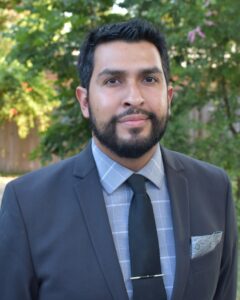
Francisco Vara-Orta
Francisco Vara-Orta brings nearly two decades of newsroom experience to his role as IRE’s first director of diversity and inclusion. Vara-Orta joined the IRE staff in February 2019 as a training director. While working as a trainer, he has conducted sessions on managing data and investigative reporting for journalists across the United States and internationally. He has worked for a variety of online and print publications, including Chalkbeat, Education Week, the San Antonio Express-News, Austin Business Journal, Los Angeles Business Journal and the Los Angeles Times. He earned a master’s degree in investigative/data journalism at the University of Missouri and a bachelor’s degree from St. Mary’s University in San Antonio.
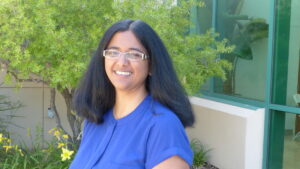
Anita Varma is an assistant professor in the School of Journalism & Media at the University of Texas at Austin. She leads the Solidarity Journalism Initiative, which is housed at the Center for Media Engagement. Varma’s research, teaching, and professional service focus on helping journalists improve representations of marginalized communities in news coverage. She has been a board member of the Society of Professional Journalists (Northern California chapter) since 2020. Dr. Varma earned her PhD at Stanford University, and was the inaugural recipient of the Penn State Davis Ethics award for her dissertation on how Bay Area journalists represent people experiencing homelessness.
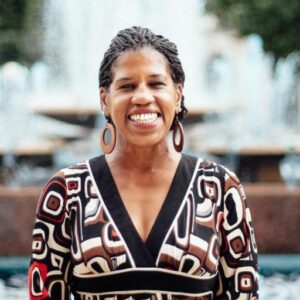
Mará (pronounced Ma-ray) Rose Williams is a native of Long Island, N.Y. and a 1981 graduate of the Ohio University E.W. Scripps School of Journalism. Currently she is a member of The Kansas City Star Editorial Board.
Previously she was the education writer for The Star where she has worked for 23 years. During that time she has won several awards for her coverage of education both at the elementary education level and the higher education level.
In 2020, Williams conceived and wrote several stories for The Star’s award-winning project, “The Truth in Black and White: An Apology From The Kansas City Star.” She was awarded the Eleanor McClatchey award for vision, leadership skills and transformation in journalism.
In 2015 she and co-writer Mike Hendricks won the prestigious Gerald Loeb Award for “Misleading March to the Top,” an investigative piece that questioned University of Missouri-Kansas City rankings.
As an Alfred Friendly Foundation Fellow, Williams did a month-long stint teaching journalism and free press at the Nation Media Group in Nairobi, Kenya, and was a guest lecturer at Moi University in Kenya.
Williams has worked as a reporter for several major news organizations including Newsday in New York and the Atlanta Journal Constitution.
THANK YOU TO OUR SPONSORS
